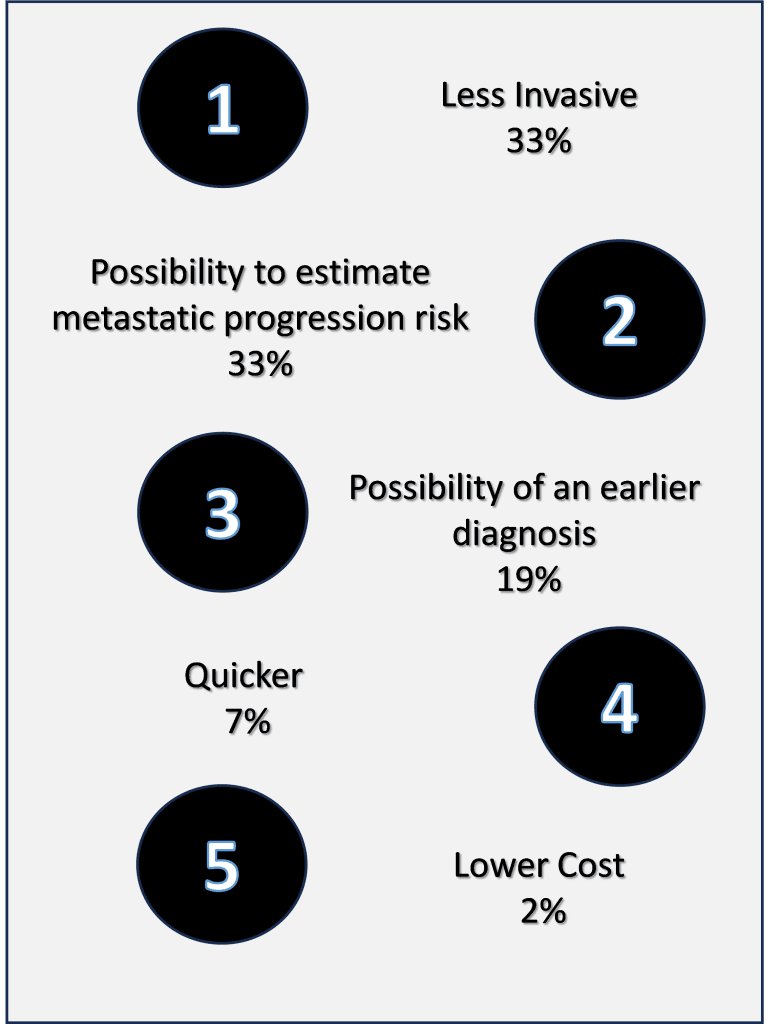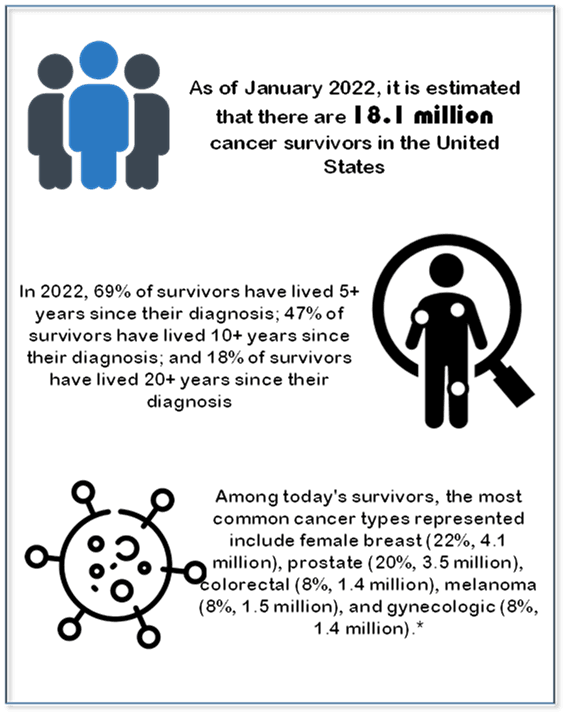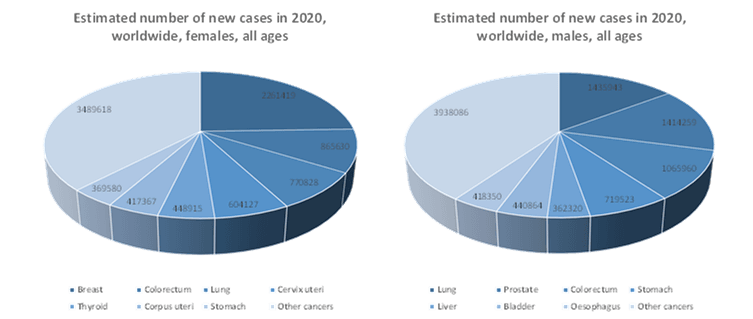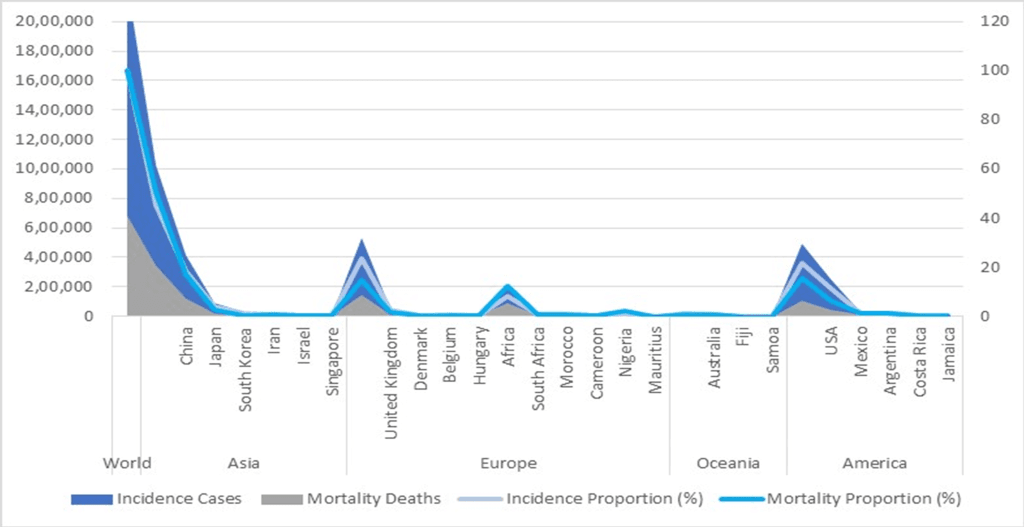- Home
- About Us
- Industry
- Services
- Reading
- Contact Us
Revolutionizing Cancer Diagnosis: NGS-Based Liquid Biopsy Unleashes Hope
Author: Vikas Kumar
February 28, 2024
Introduction
In the ever-evolving realm of medical science, breakthroughs tirelessly pave the path to improved patient care. One such groundbreaking innovation that holds immense promise in the field of oncology is NGS-based liquid biopsy. As the flagship technology of the future, it offers a non-invasive solution that could revolutionize cancer diagnosis and treatment. NGS, or Next-Generation Sequencing, enables scientists to unlock the secrets hidden within a patient’s genetic code. Paired with liquid biopsy techniques, this state-of-the-art technology allows early detection and monitoring of various types of cancers. Gone are the days when invasive tissue biopsies were the only option to obtain critical genetic information. Today, a simple blood sample can provide a wealth of clinically relevant data, changing the lives of millions worldwide.
Unlock Insights: Receive a Sample Research Report on the NGS-Based Liquid Biopsy Market : https://univdatos.com/reports/ngs-based-liquid-biopsy-market?popup=report-enquiry
The Remarkable Advantages:
- Early Cancer Detection: NGS-based liquid biopsy offers a game-changing advantage by detecting cancer at the molecular level, often before the appearance of any visible symptoms. This allows healthcare professionals to initiate treatment plans swiftly, increasing the chances of successful outcomes.
- Monitoring Treatment Response: Traditional biopsies are neither practical nor timely for monitoring how a therapy is impacting the patient. However, the liquid biopsy technique can be repeated throughout the treatment journey, providing valuable insights into tumor progression and identifying potential drug resistance. This empowers doctors to adjust treatment plans tailored to individual patients, maximizing their chances of recovery.
- Non-Invasiveness: Unlike conventional tissue biopsies, liquid biopsy involves extracting genetic material, such as circulating tumor DNA, circulating tumor cells, or extracellular vesicles, from bodily fluids like blood or urine. This non-invasive procedure significantly reduces patient discomfort, eliminates the risk of complications, and enables frequent testing whenever required.
- Personalized Medicine: Armed with NGS-based liquid biopsy results, healthcare professionals can develop personalized treatment strategies for each patient. By analyzing a tumor’s unique genetic makeup, doctors can pinpoint specific molecular abnormalities and select targeted therapies, leading to more effective and tailored treatment plans.
Fig: Advantages of Using Liquid Biopsy over Traditional Biopsies

“Disrupting the Cancer Landscape: NGS-based Liquid Biopsy Redefines Diagnostic Precision”
Cancer, a formidable adversary that affects millions of lives worldwide, requires early detection for effective treatment. Traditional tissue biopsies have been the gold standard for diagnosis, but they are invasive, often difficult to obtain, and may not provide a comprehensive picture of tumor heterogeneity. However, with the advent of Next-Generation Sequencing (NGS) based liquid biopsy, a non-invasive and highly sensitive technique, a new era in cancer diagnostics and monitoring has dawned. Government bodies worldwide acknowledge the potential of NGS-based liquid biopsy in revolutionizing cancer care. Here are a few statistics from reputable sources:
1. National Cancer Institute (NCI) – United States:
According to the NCI, in a study involving patients with advanced non-small cell lung cancer (NSCLC), liquid biopsy-derived ctDNA analysis identified previously unknown mutations in approximately 75% of the cases, which could potentially guide treatment decisions or clinical trial enrollment.
2. National Health Service (NHS) – United Kingdom:
The NHS has recognized the potential of NGS-based liquid biopsy for cancer management. They state that liquid biopsies can provide valuable information about genomic alterations in tumors, allowing for targeted therapies and personalized treatment approaches.
3. National Centre for Cancer Care and Research (NCCCR) – Qatar:
As per the NCCCR, liquid biopsy has proven to be a powerful tool in cancer diagnostics, especially for patients with inaccessible or insufficient tissue samples. They highlight its potential role in monitoring tumor dynamics and disease progression.
Fig: Cancer Statistics


Fig: The Burden of Breast Cancer for Different Countries (in 2020)

Market Analysis
According to Univdatos Market Insight, the NGS (Next-Generation Sequencing) based liquid biopsy market is experiencing significant growth and adoption due to several driving factors. Firstly, the increasing incidence of cancer worldwide has created a strong demand for effective and non-invasive cancer diagnostic tools. NGS-based liquid biopsy offers a promising solution by analyzing cell-free DNA and circulating tumor DNA in blood samples, providing valuable insights into cancer detection, monitoring, and treatment response. Secondly, advancements in NGS technology have improved the accuracy, sensitivity, and efficiency of liquid biopsy assays, making them more reliable and commercially viable. Furthermore, the rising patient preference for minimally invasive procedures and the need for real-time monitoring of disease progression are fueling the demand for liquid biopsy tests. Additionally, the expanding applications of liquid biopsy beyond oncology, such as reproductive health and transplantation monitoring, are contributing to market growth. Lastly, the collaboration and investments by pharmaceutical and biotechnology companies, along with the support from regulatory authorities, are further propelling the NGS-based liquid biopsy market. Overall, with its potential for early cancer detection, monitoring of treatment response, and personalized medicine, the NGS-based liquid biopsy market holds immense promise and is being driven by these key factors.
The market for NGS based liquid biopsy is highly competitive and consists of several prominent players. These include established companies engaged in genomics and diagnostics, as well as emerging startups that focus on liquid biopsy technologies. Some of the key players in this market include Illumina Inc., Thermo Fisher Scientific Inc., QIAGEN N.V., Guardant Health, Inc., and Roche Diagnostics, among others. These companies are adopting strategies such as partnerships, collaborations, mergers, and acquisitions to expand their product portfolios and gain a competitive edge.
Regional Analysis
As per UnivDatos analysis, North America dominates the NGS-based liquid biopsy market due to the presence of well-established healthcare infrastructure, advanced technological advancements, and favorable government initiatives. Countries like the United States and Canada have a large number of market players and active research and development activities in the field of liquid biopsy. The region also has a high awareness and acceptance of personalized medicine, contributing to the market’s growth.
Europe is a significant market for NGS-based liquid biopsy, driven by factors such as increasing incidence of cancer, rising adoption of precision medicine, and growing investments in research and development activities. Countries like Germany, the UK, and France have a strong healthcare system and substantial funding for oncology research. Additionally, the presence of key market players and collaborations between academic institutions and industry further propel the market growth in this region.
The Asia Pacific region is witnessing rapid growth in the NGS-based liquid biopsy market owing to factors like a large population base, increasing prevalence of cancer, and rising healthcare expenditure. Countries such as China, Japan, and India offer significant growth opportunities due to the advancements in healthcare infrastructure, rising disposable income, and increasing awareness about early cancer detection methods. Moreover, partnerships between local and international companies to introduce novel liquid biopsy products also contribute to market growth in this region.
Explore the Comprehensive Research Overview, Including a Table of Contents, on the NGS-Based Liquid Biopsy Market : https://univdatos.com/reports/ngs-based-liquid-biopsy-market
Conclusion
In conclusion, the NGS (Next-Generation Sequencing) based liquid biopsy market holds immense potential for revolutionizing the field of personalized medicine and cancer diagnostics. The market has experienced significant growth due to its ability to provide non-invasive and real-time monitoring of genetic alterations and biomarkers in various types of cancer. With the advent of advanced NGS technologies and the increasing demand for targeted therapies, the NGS based liquid biopsy market is projected to witness continued expansion. The market’s growth is primarily driven by factors such as the rising prevalence of cancer, the need for early and accurate cancer detection, and the development of novel liquid biopsy tests. The potential of NGS technology to analyze multiple genetic alterations simultaneously makes it a powerful tool for oncologists and researchers to guide treatment decisions and monitor disease progression. Furthermore, the market’s growth is supported by increasing investments in research and development, collaborations between pharmaceutical companies and diagnostic laboratories, and the expanding application of liquid biopsy in various cancer types. The continuous advancements in sequencing technologies, bioinformatics, and data analysis techniques further enhance the market’s growth potential. However, challenges such as the high cost of NGS-based liquid biopsy tests, regulatory complexities, and the need for standardized sample processing protocols need to be addressed to ensure wider adoption and integration of these technologies into routine clinical practice.
Get a Callback
